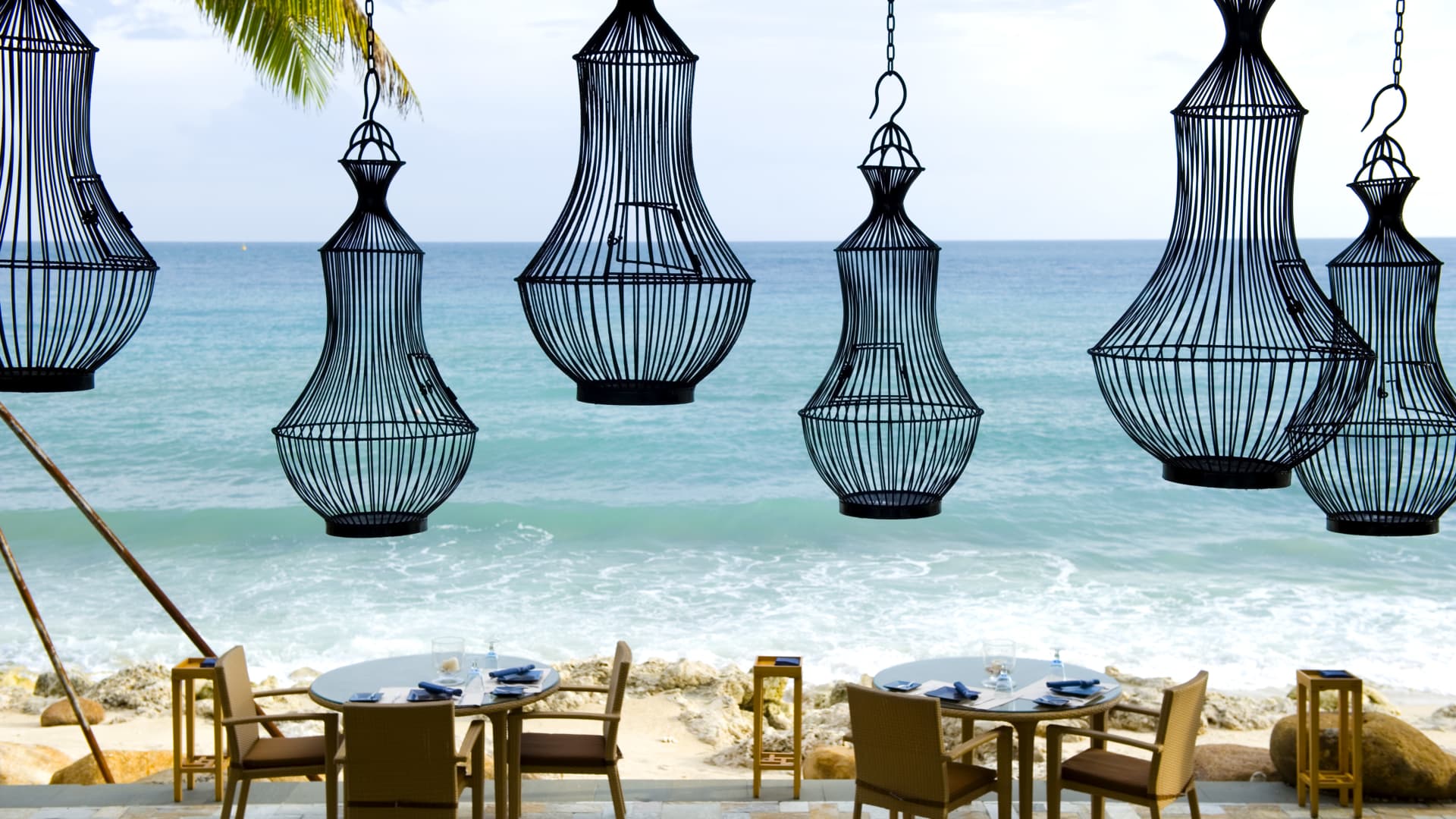BEIJING — China’s tourist-heavy province of Hainan is falling further behind lofty growth goals it set in January.
Back then, the island said it aimed for 9% GDP growth this year. But like China’s economy overall, growth is running far below initial targets — due in a large part to outbreaks of a far more transmissible Covid variant.
A surge in Covid infections this month forced Hainan’s oceanside resort city of Sanya to order tens of thousands of tourists to stay put at their hotels, and local residents to stay at home. Haikou, the province’s capital, also issued stay-home orders.
Airlines cancelled flights, leaving tourists stranded on Hainan island since Saturday. In the last few days, some people have been able to return to the mainland on government-organized charter flights.
But questions remain — about uniform implementation of hotel stay subsidies, the cost of food and how soon most tourists can return to their homes.
“The public image and reputation of Hainan is damaged for the short term,” said Jacques Penhirin, a partner in the Greater China office of Oliver Wyman. “When I talk to the client they’re all looking at the bookings for [the upcoming fall holiday] which are still quite resilient. People have not cancelled yet, but it’s not looking good. Probably down on last year.”
It’s “going to be bad for luxury brands and hospitality at least until Chinese New Year next year,” he said, referring to the Lunar New Year holiday in late January 2023.
Hainan’s economy
In late July, China’s top leaders indicated the country might miss the GDP target of around 5.5% set in March. Beijing did not signal any large-scale stimulus, or any change to its “dynamic zero-Covid” policy.
The national economy grew by just 2.5% in the first half of the year, according to official figures. Hainan’s economy underperformed even that sluggish pace, only growing by 1.6% in the first half of 2022.
That’s a sharp slowdown from the island’s 11.2% GDP growth for all of 2021.
In fact, Hainan’s growth last year was second only to that of Hubei province, pointed out Ying Zhang, research analyst at the Economist Intelligence Unit.
“Because of the international travel restriction, Hainan has benefited from the tourism revenue, up by nearly 60% last year,” she said. Zhang estimates tourism accounts for more than 80% of Hainan’s economy.
Sanya, on the southern coast of Hainan, was the top destination for couples flying from three of China’s largest cities last week for China’s version of Valentine’s Day, according to booking site Trip.com.
The island boasts one of the few beachfront locations for international luxury hotels like Mandarin Oriental and Hyatt in mainland China.
Hainan is also building out duty-free shopping malls as part of central government’s push to turn the island into a free trade hub and international shopping area.
Sales at duty-free stores on the island surged by 84% last year to 60.17 billion yuan ($8.93 billion), according to official figures.
During a consumer goods expo in Hainan in late July, sales at four duty-free stores rose by 27% year-on-year to 330 million yuan, the customs agency said.
Another hit to confidence
So far, cosmetics brands rely far more on Hainan for sales than affordable luxury brands — potentially up to a third of their China business, said Oliver Wyman’s Penhirin. He said Hainan generally accounts for less than 5% of China sales for affordable luxury brands, while high-end luxury has yet to enter that market.
An Oliver Wyman survey in May found that after roughly two months of lockdown in the metropolis of Shanghai, respondents from luxury and premium consumer brands cut their China growth expectations for the year by 15 percentage points.
“The question is definitely when will consumer regain confidence and peace of mind of travel and shopping which is further delayed by this Hainan incident,” Penhirin said, noting he expects this month’s lockdowns will be forgotten in one or two years.
“It’s more about the confidence than the income itself, especially for the luxury goods,” he said.
In the meantime, he said brands should put more effort to track their inventory in China, to make sure products aren’t being sold at levels that might induce a price war.
